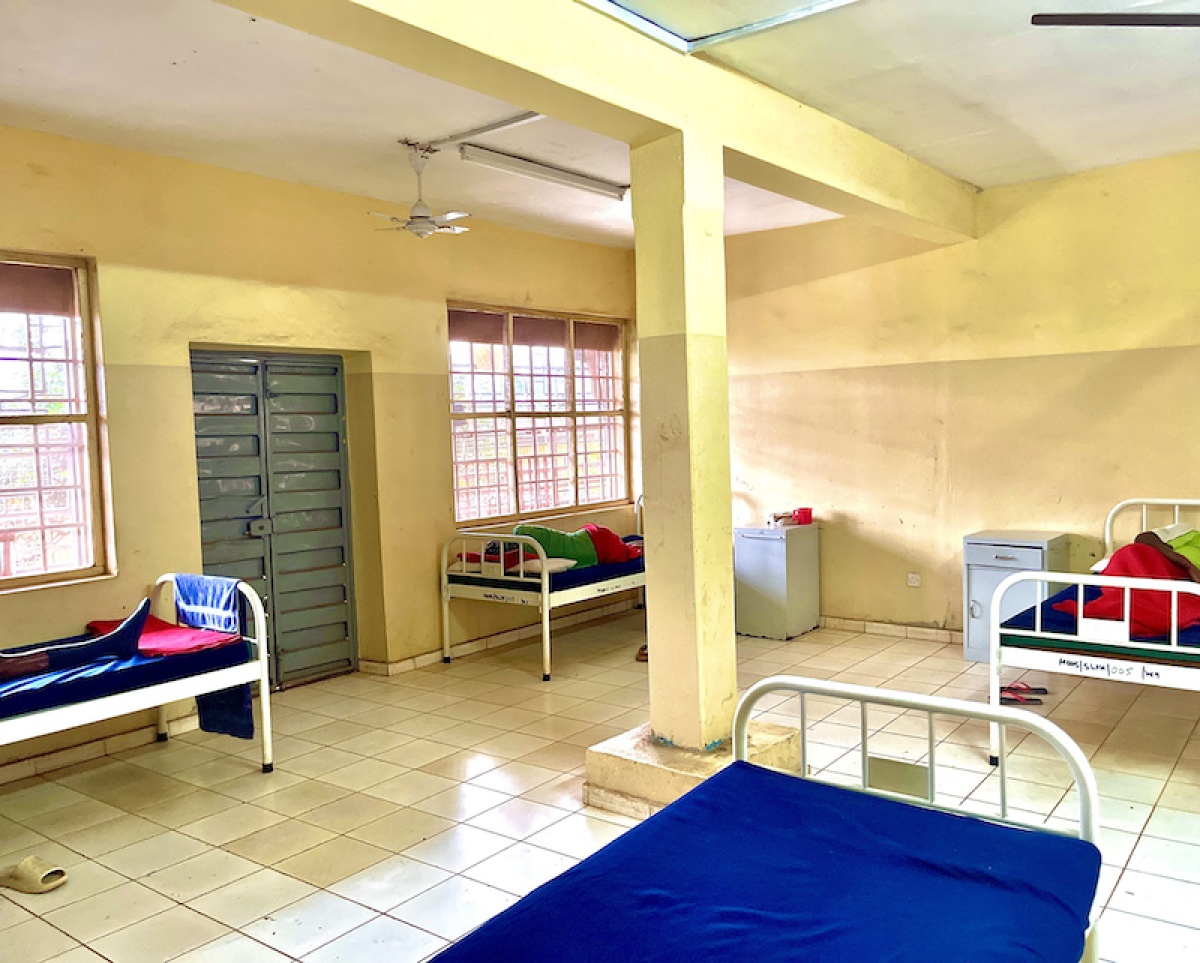Psychiatric Teaching Hospital Earns Accreditation in Sierra Leone
The achievement will strengthen the country’s mental health care resources, staff
Posted on Nov 3, 2022

The Sierra Leone Psychiatric Teaching Hospital (SLPTH) has received a formal 5-year accreditation for the first-ever psychiatry residency program in the country. With this accreditation, Sierra Leone will be able to train its own psychiatrists for the first time, while strengthening the capacity of other health professionals in mental health care delivery.
“It is a huge accomplishment for the nation and a testament to the hard work and resources that we have put into the development of mental health treatment in our country,” says Dr. Jusu Mattia, one of seven residents in the program.
The Partners In Health (PIH)-supported facility was accredited by the West African College of Physicians, an association of medical specialists that promote professional training of physicians in West Africa to improve standards of practice and specialty training.
In order to receive accreditation, hospitals must submit an application and coordinate a visit for an assessment of the facility. Some of the factors assessed include: human resources capacity, including presence of a neurologist to train residents; infrastructure capacity, including a laboratory to run tests and monitor medications; quality of the drug rehab therapy program, as well as child and adolescent services; and the condition of triage and outpatient supplies and other essential equipment like ECT and EEG machines, among other criteria. Once the assessment is complete, the findings are then shared with the board and applicants await a decision.
While the process was extensive, the SLPTH accreditation team met the requirements and received full accreditation on the first attempt.
Much-Needed Training, Support
The accreditation is a huge accomplishment, not only for the hospital but also for the nation. There are currently only three psychiatrists in the country, which is home to more than eight million people. And for many years, there was one psychiatrist. Additionally, psychiatric training wasn’t available.
“As a result, medical doctors like myself were required to receive psychiatric training in a foreign country. We will no longer need to [do that], which will increase the human resources in mental health care,” says Dr. Haja Abibatu Jalloh, a resident in the first cohort. “For me, it is like a dream come true!”
This in-country training will increase the retention of doctors, while also attracting doctors from other countries to receive psychiatric training.
With the partnership and continued support of PIH and Harvard Medical School, the program will expose doctors to evidence-based practices and serve as an opportunity for cross-site learning. By training with and learning from medical professionals with various backgrounds and knowledge, residents will be equipped to practice anywhere around the globe.
The residency program will serve as a hub for building, expanding, and strengthening mental health care in the country. It will not only train specialists in psychiatry but will also build the capacity of other health care professionals in the delivery of mental health services as well as providing strategic leadership, planning, and administration at government and international levels. The specialists will provide leadership in a multi-disciplinary mental health team, at all levels of care, provide effective teaching to all categories of health workers and public groups, and be able to carry out relevant research in the field of global mental health and related disciplines.
“I am so excited to be part of this amazing accomplishment that gives hope to people who for decades have been abandoned, isolated, chained, starved, and hugely stigmatized because of their mental health problems,” says Chenjezo G. Gonani, PIH’s mental health program manager.

Previously known as Kissy Mental Hospital, SLPTH is the oldest psychiatric hospital in sub-Saharan Africa and the only dedicated psychiatric hospital in Sierra Leone. Once an under resourced facility, it has since transformed into a hospital capable of providing comprehensive clinical services and teaching the next generation of medical professionals. Through a partnership with PIH in 2018, the team progressed from an average of 40 to 75 monthly outpatient visits to 75 to 300 monthly visits since the start of the program. The improved services have also resulted in an increased number of new patients coming from other districts, given that SLPTH now offers some of the best services in the country. Through infrastructure improvements for care delivery, renovations of patient wards and grounds, and improving monitoring of patients, the hospital has been able to expand clinical services for substance use, launch a child and adolescent mental health unit, and offer treatment for urgent mental health diagnosis.
With the recently announced accreditation, SLPTH staff and residents hope the hospital and residency program will become an example of the quality of care that is possible in the country and region, while giving patients the mental health care they deserve.

